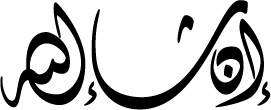
بإذن الله doesn't have much of a web presence yet.
To the extent we are able to leave our offices, and in the face of a taxing production schedule, TBE has been puzzling over a few changes in the way some Cairenes express themselves, as well as some sad celeb-related news… Our investigations of بإزن الله، إزي الصحة and يا ميستر after the jump.
بإذن الله
First up is the increasingly frequent use of “بإذن الله” (with God’s permission) instead of “إن شاء الله” (if God wills) when speaking about some future event. As far as TBE can tell, the two terms are used interchangeably, but our Arabic is not at a level where we can make any judgments with complete confidence. Nonetheless we do believe that over the last several months بإذن الله has been making inroads into إن شاء الله’s once impregnable fortress of future-marking. If any of our readers (or Michael Slackman) has any insight or speculation on this topic or any others covered here, please don’t hesitate to comment.
إزي الصحة؟
On a similar note, TBE has noticed a trend of people saying إزي الصحة؟ (how is your health?) instead of plain-jane إزيك (how are you?). We have a (perhaps unfounded) belief that many people who use the former form (إزي الصحة؟) are vaguely Islamisty, but we’re not sure on what that impression is founded. Nonetheless, we’re always interested in the kinds of methods members of subgroups within societies use to mark out their identities, even if they themselves aren’t always conscious of doing so, and how these identity-markers spread organically amongst members of/sympathizers with a given group/ideology/worldview. As stated above, we’re not even sure that’s the case here, but are interested in learning more.
Also, some bonus historical trivia: According to TBE sources, the interrogative participle “إزاي” can be traced back until at least the 1600s, and is a compound word created from the classical Arabic phrase “اي شي زيه؟” meaning “What is his attire?”

Leighton Meester was crestfallen when she found out all those shouts of يا ميستر were not directed her way.
يا ميستر
TBE arrived in Egypt with grand plans to watch the first season of Gossip Girl, which several friends and acquaintances had assured us was well worth our time. Also we once witnessed it being filmed. Anyhow, we never followed through on our solemn vow to imbibe in that sweet elixir known as Gossip Girl, but have maintained a pecuniary interest in the show.
As it happens, one of the show’s stars is named Leighton Meester. For as long as TBE can remember, our barber, amongst others (but he is the one who stands out in our minds), has referred to us with “يا ميستر” (Hey Mister). This triggered in our minds an imaginary scenario in which the aforementioned Ms. Meester came to Egypt, and upon repeatedly hearing her name invoked of her name, albeit not directed at her, began to believe that her fame in Egypt eclipsed even that which she enjoys stateside, in a Hasselhoff-in-Germany kind of way.

Sometimes when I say إن شاء الله to someone, they respond by saying إن شاء الله بإذن الله.
My bawwab, a sweet old woman who reminds me of all the grandmothers played by Amina Rizq in Egyptian films, always says إزي الصحة to me.
An offline commenter agreed that the usage you mention is the only way she’s heard بإذن الله, after which TBE entered a brief period of self-doubt about the veracity of our claims. But then yesterday our local makwagi used it in conversation.
Thinking a bit more about it, we realized that most and perhaps all of the people we’ve heard use بإذن الله as a substitute for إن شاء الله are natives of Upper Egypt, so maybe it is a more common usage there.
Not only that, but إن شاء الله is now paradoxically used with the past, as in the following:
: How many children do you have?
: Three إن شاء الله.
!!??
ya Shehab,
TBE’s philosophy correspondent is on vacation, and we are only vaguely familiar with the field, but we happen to know that you have a wide understanding of it. It came to us that perhaps the people to whom you refer are expressing a radical skepticism about the contents of the world, somehow related to Descartes’ “evil genius” argument. TBE has not worked out the particulars of this possibility, but finds it intriguing nonetheless.
Please note this understanding can be applied to Kato’s comment below as well.
loooool
Indeed!
your humble servant/local informer
thats hilarious. i’ve heard it used to receive compliments, as in
:your cooking is great
:inshallah
(not masha allah which might be expected)
Unrelated to this post but apropos of the general theme: http://lynch.foreignpolicy.com/posts/2009/07/13/jay_z_vs_the_game_lessons_for_the_american_primacy_debate
In Syria I got the general impression that بإذن الله could be used for things that were more likely to happen…but that was highly impressionistic and quite possibly wrong.
There may be shifts in usage, and because it’s late I’m not going to post in Arabic script here, but a few points:
1) I’ve had Egyptians tell me that there is a clear distinction between “inshallah” (in which the hamza is elided) and “In sha’ Allah” in which the hamza is clearly pronounced: Inshallah means maybe just possible but probably not, while In sha’ Allah means this will definitely happen barring something unforeseen.
2) The “What is his attire?” translation of Izzayak is, I think, too narrow. Lane’s lexicon offers for “Zayy” “Garb, guise, dress, habit, fashion of dress, and aspect or outward appearance.” I think something like “aspect” or “condition” may explain the origins of the modern usage more than “attire”.
3) I do think in sha’ Allah and ma sha’ Allah have gotten a bit confounded. B’izn Allah always seemed a common usage even 30 years ago; never detected anything “Islamisty” about it. I think “in sha’ Allah b’izn Allah” is just a repetitive reinforcement, like “Ya Sidi Ya Basha Ya Bey” and other uses of synonyms piled on. (Kwayyis ‘awi ‘ala tul jiddan jiddan) etc.